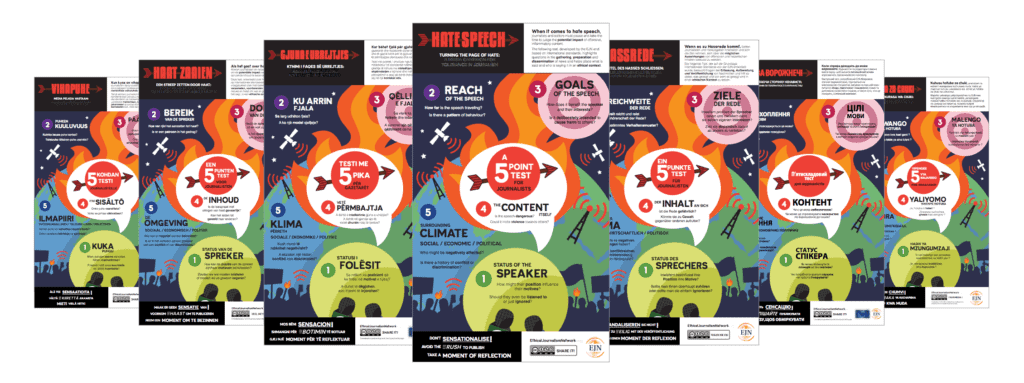Point One: The Position or Status of the Speaker
Journalists are often accused of hate speech, and indeed some commentators willingly indulge in provocative and abusive talk when it suits them, but in the vast majority of cases, journalists and media are guilty only of reporting the foul-mouthed statements of others.
In particular, journalists and media are regularly trapped by media-savvy and unscrupulous politicians and community leaders. These skillful users of media stir up disputes and discord in support of their own prejudices and bigoted opinions and rely on media to give coverage to their sensational claims and opinions no matter how incendiary they are.
Journalists and editors must understand that just because someone says something outrageous that does not make it news. Journalists have to examine the context in which it is said and the status and reputation of who is saying it.
A rabble-rousing politician who is adept in manipulating an audience should not get media coverage just because they create a negative climate or make unsubstantiated and controversial comments.
When people who are not public figures engage in hate-speech, it might be wise to ignore them entirely. A good example is Terry Jones the Koran-burning pastor in Florida who was an unknown person with marginal influence even in his rural backwater but who became an overnight global media sensation. On reflection most ethical journalists might say he was entitled to no publicity for his provocative threats.
Even when people are public figures media have to make sure they do not draw undue attention to politicians and other influential people whose only aim is to create a negative climate towards people whose rights should be respected, particularly those from vulnerable and marginalised groups. Often these rights are recognised under constitutional guarantees at home and globally.
In particular, journalists have to scrutinise speakers and analyse their words, examine their facts and claims, and judge carefully the intention and impact of their interventions. It is not the job of journalists to adopt counter positions, but claims and facts should be tested, whoever is speaking.
Freedom of speech is a right for everyone, including politicians and public figures and it is the job of the journalist to ensure that everyone has their say, but that does not mean granting a licence to lie, or spread malicious gossip or to encourage hostility and violence against any particular group. When people speak out of turn good journalism should be there to set the record straight for all.

Read More
The EJN five-point test of hate speech has been developed by EJN advisers and is based on international standards.
It highlights some questions to be asked in the gathering, preparing and disseminating of news and information that will help journalists and editors place what is said and who is saying it in an ethical context.
Browse the report, and explore our related resources, by clicking on the links below.
The EJN’s 5-Point Test for Hate Speech Video
Watch Aidan White explain how journalists can use the test in the video below.
Watch our YouTube playlist of videos on reporting hate speech.
The EJN’s 5-Point Test for Hate Speech – Infographics
